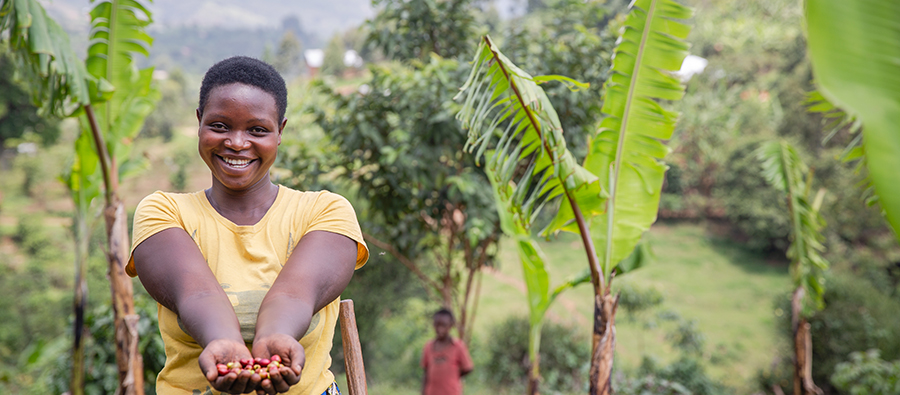Ahead of International Women’s Day on 8th March, Sam Viney, Communications and Advocacy Officer at Farm Africa, explores how access to land and inputs can include women and youth in Uganda’s coffee boom.
I’m in my twenties but whenever I go to Uganda it makes me feel old! The world’s second youngest country’s median age is 15, and 77% of the population is below 30.
Every day, hundreds of young Ugandans hit the job market. Many find employment, but often not.
Unemployment in Uganda is rising and young people shoulder the burden. In 2015, one in three young Ugandans was unemployed. When young people find work it’s normally insecure, part-time or unpaid family work. Women are more likely to be unemployed than men.
Uganda’s young people are full of entrepreneurial spirit, and never fail to fill me with confidence in the country’s future. Providing 70% of the country’s employment opportunities and contributing more than half of all exports, agriculture is Uganda’s most obvious vehicle to unleash their potential.
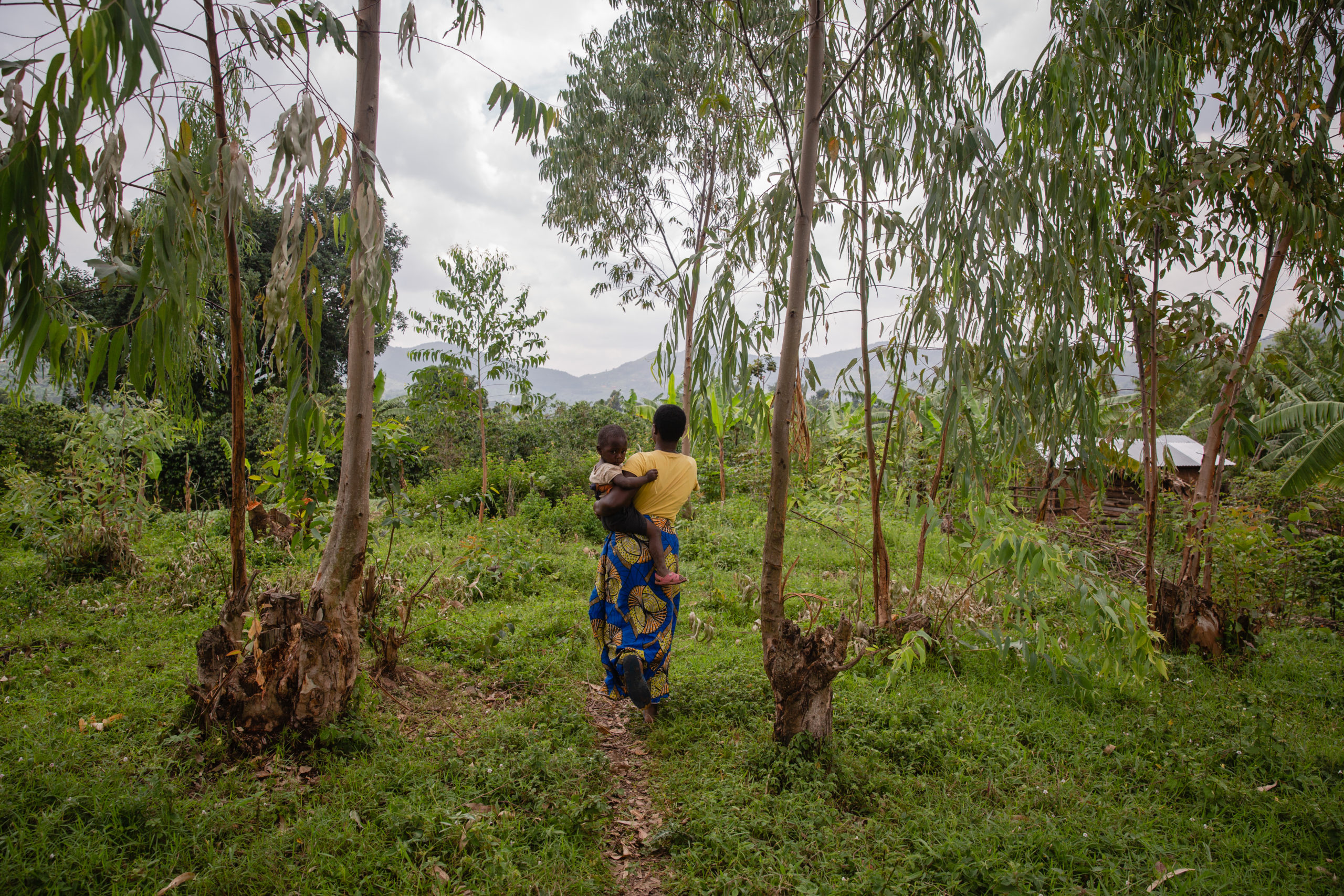
Credit: Esther Ruth Mbabazi/Farm Africa
Opportunity is brewing
Uganda’s employment challenge is coupled with rising demand for their most lucrative export: coffee.
There is huge demand for the caffeinated treat, and Kanungu’s tropical climate, in south-western Uganda, provides the perfect conditions to grow it. This should bring opportunities.
Despite this huge potential, limited access to land and low profits stop youth and women from investing in coffee production.
With co-funding from the European Union, the international NGO has launched a project in Kanungu that develops young people’s skills and links to markets, and helps them gain access to the land they need to become successful coffee entrepreneurs.
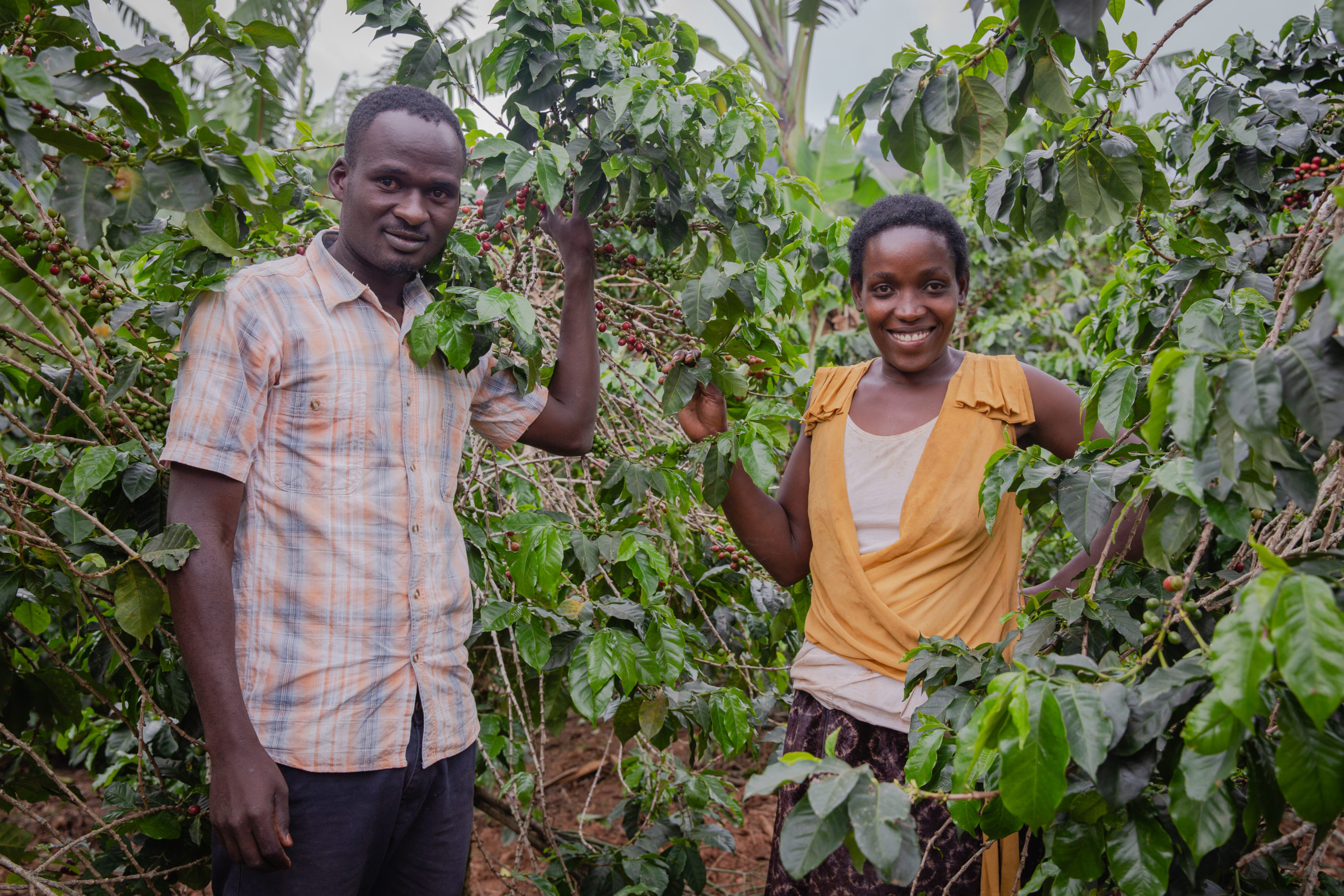
Credit: Esther Ruth Mbabazi/Farm Africa
Access to land
Like many young Ugandans, Gillian and Dan need more land. The couple has a one-acre coffee farm that they received from Dan’s father Murisa.
Their annual income of £266 “isn’t enough”. If they had more land they’d be able to provide their son, who suffers from life-threatening fits, with much needed medical care.
Dan’s parents could afford to give Gillian and Dan a portion of their 45-acre farm but Murisa isn’t keen on the idea.
In Uganda, land is seen a man’s asset, the eldest man in the family doesn’t like to cede control over land or agricultural decisions to women or younger men.
“Agriculture employs 93% of Kanungu’s residents. Land is in the hands of older men. Youth face hardship accessing land, young women doubly so.” Martin Atukwase, General Secretary of Kanungu Ugandan Young Farmers’ Association. “No land, no opportunity.”
Youth need access to and control over land to invest in coffee. Coffee plants take around five years to bear fruit so young farmers need to start planting early on in their careers to see economic returns later in life.
Farm Africa has helped set up the Kanungu chapter of the Ugandan Young Farmers’ Association. The young leaders were provided with advocacy training, and are calling for greater access to land for women and young people.
The young leaders have hit the ground running, working with TV and radio stations, and organising intergenerational meetings to change fathers’ minds about land.
Land agreements
Farm Africa’s staff in Kanungu are working with families to create agreement amongst family units about land access issues.
These conversations are sensitive. Land is a delicate subject. Uganda has seen a spate of deaths involving young men killing other family members over access to family land.
Many fathers recognise youth and women’s need for land but worry that equipping them with land will undermine their authority and lead to the sale of family land.
Farm Africa sensitively allays these fears by working with fathers and other household members to develop voluntary land use agreements.
The content of the agreements is decided upon by the family. In general, agreements look to provide young people and women with access to and control over what’s grown on a piece of land for a specific period of time. Agreements normally stipulate that the occupant cannot sell land.
These agreements provide young people and women with the opportunity to invest in their businesses and future. The process hopes to kickstart a journey that sees young people go from being job seekers to job creators.
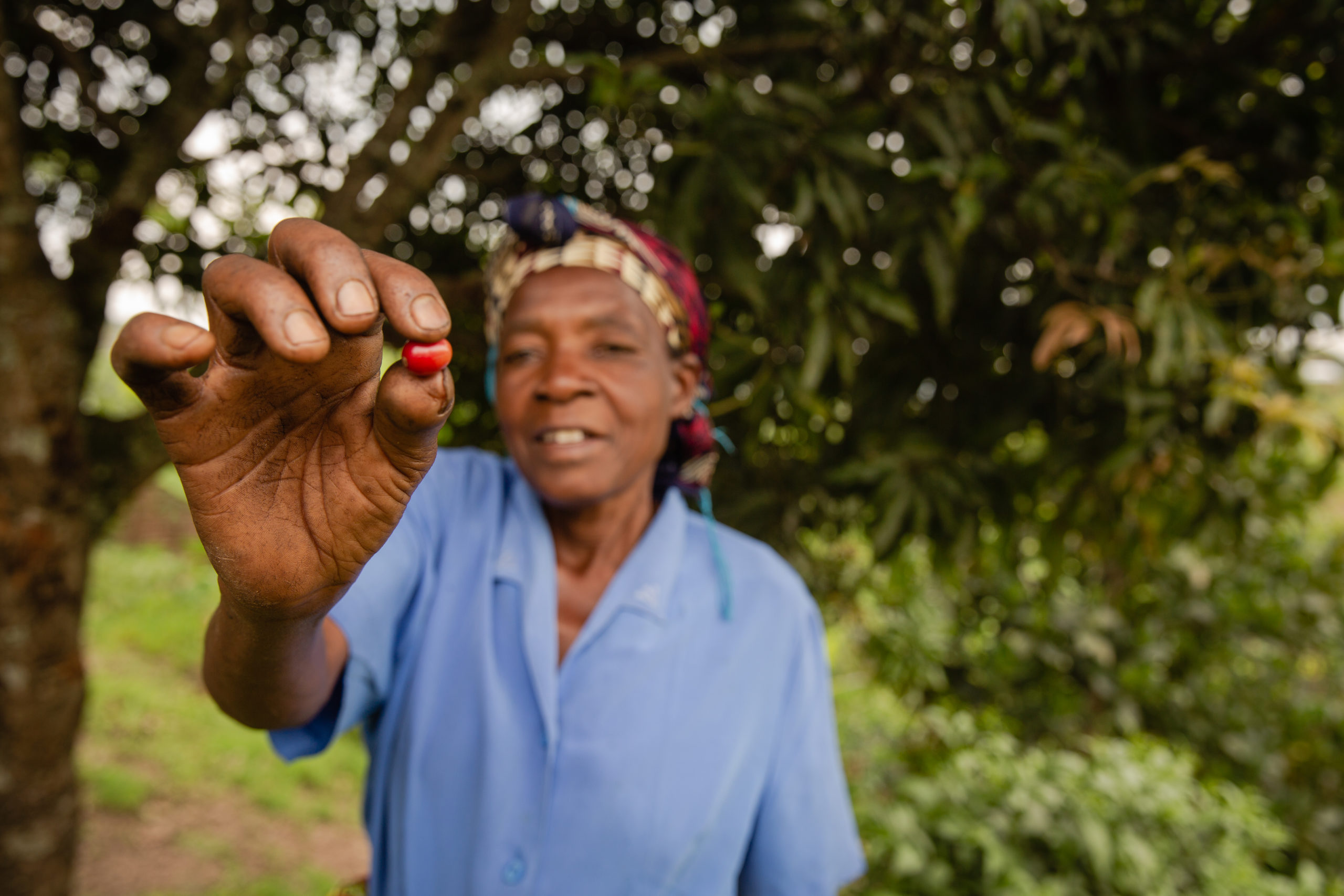
Credit: Esther Ruth Mbabazi/Farm Africa
Improve quality
Kanungu’s coffees could be amongst the best in the world but poor farming practices and processing mean that farmers produce low quality coffee, relegating their produce to cheap instant coffee, and other sub-par, markets.
The project is training 4,800 people to grow and process quality coffee and gain access to more lucrative markets.
Many farmers are selling coffee for as little as 10p a kilogram, if they improved coffee quality they could be selling at £2 a kilogram locally in Kanungu and upto £4 a Kilogram in the international markets
In a context of shrinking farm sizes, providing people with the skills and resources necessary to maximise land use and produce quality coffee that fetches a good price is extremely important.
It also makes the land access ask easier: give skilled people the chance to enter a profitable market, unlocking profits that will benefit the whole family.
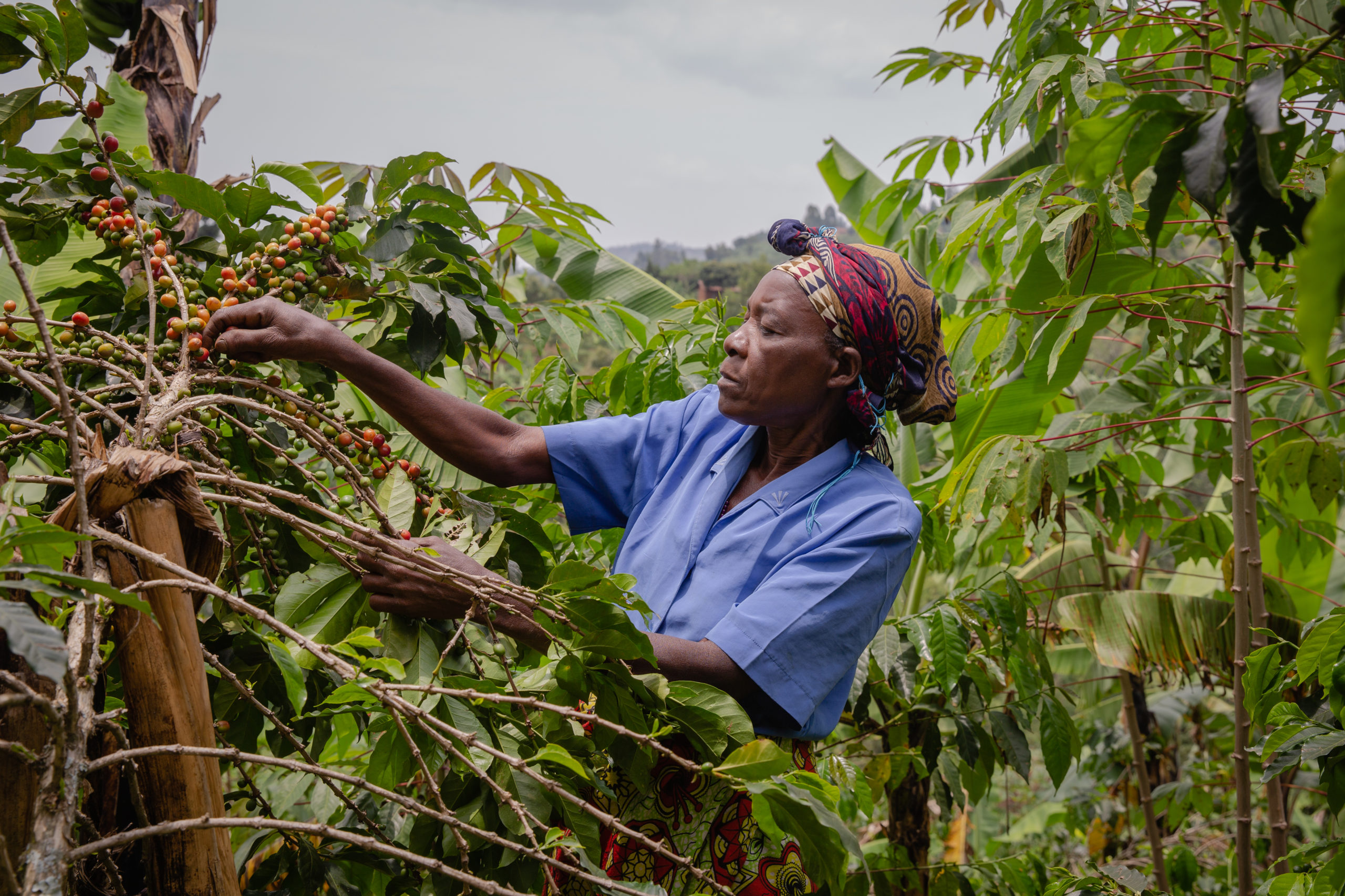
Credit: Esther Ruth Mbabazi/Farm Africa
Coffee, a man’s crop?
In Kanungu, coffee is seen as a man’s crop. Men sell the cash crop and pocket the earnings, while women do the majority of the agricultural work and see little, if any, of the profits.
Farm Africa plans to launch a new project in September 2019 to complement the existing work.
Made possible by matched funding from the UK government for Farm Africa’s recently launched Coffee is Life appeal, the new project will provide women with the support they need to become actively involved in coffee cooperatives and earn a fair share of coffee production profits.
The project will help women move from providing menial labour harvesting coffee to assuming positions of responsibility actively involved in adding value to the coffee, marketing it and securing good prices from the international speciality coffee market.
Featured photo credit: Esther Ruth Mbabazi/Farm Africa
